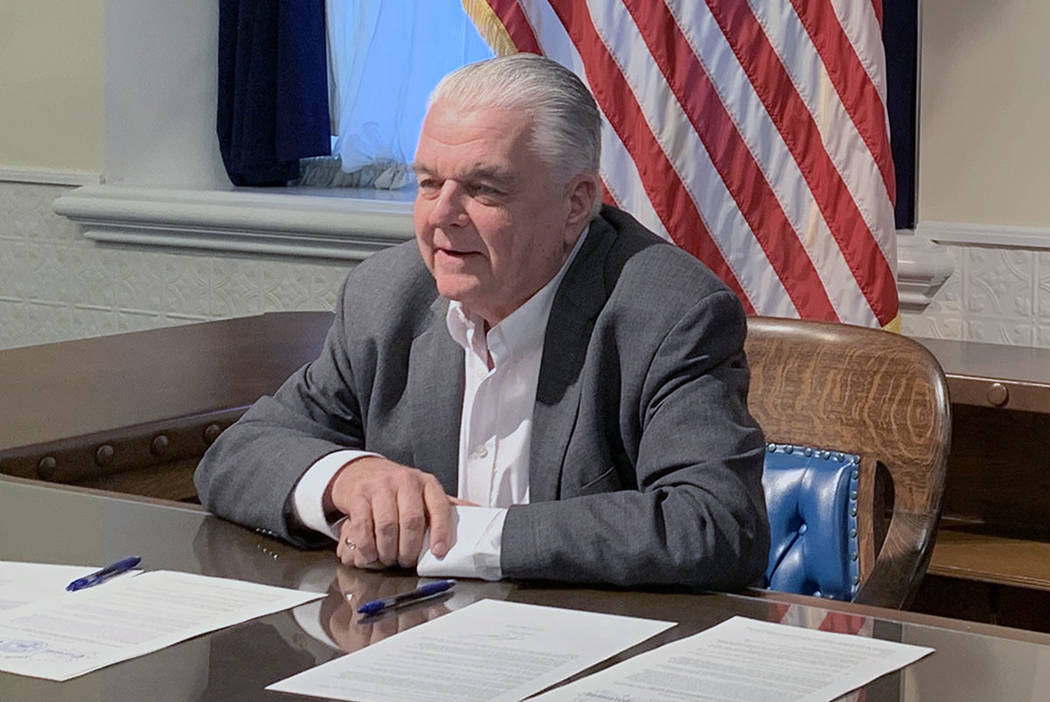
CARSON CITY — Gov. Steve Sisolak named an advisory panel on Jan. 25 that will write rules and procedures for a new compliance board to regulate Nevada’s exploding cannabis industry.
Created by executive order, the panel is tasked with completing its work in time for the Legislature to vote on its proposals this coming session. The governor set a deadline of March 15 for the panel to come up with bill language.
“This is our initial foray into the industry,” the governor said in signing the order, his third since taking office this month.
“Similar to gaming, it’s an industry that’s going to be highly regulated, and the licensing is difficult, but it’s something that I think we need to get a handle on immediately because there’s been inconsistencies as it relates to the different jurisdictions and questions about the process.”
The legislative session, which opens Feb. 4, is the first opportunity for lawmakers to look at potential tweaks to the state’s recreational marijuana laws; roughly a dozen marijuana-related bills are pending.
Voters approved recreational marijuana use and sales in 2016. Sales started in July 2017, and first-year sales came in 60 percent higher than projected.
The governor’s panel will look at industry licensing and regulatory procedures; review existing procedures for other industries, such as gaming; and come up with a suitable structure to oversee the marijuana business.
It will also look for marijuana banking solutions — a problem that has developed in other states as well because the drug remains illegal federally — along with rules on consumption lounges, advertising, enforcement and how the state’s rules will apply to or affect federally recognized tribes.
In announcing the order, Sisolak repeatedly stressed his desire for increased transparency in licensing and regulating cannabis use and sales within the state.
“This industry has an enormous investment in our state. They have an enormous investment in the citizens of our state in terms of employing them, and it generates a lot of tax revenues,” he said. “So it does affect every single citizen, up and down the spectrum, how this industry is regulated. It’s important to us that it be conducted in an open, transparent and fair manner.”